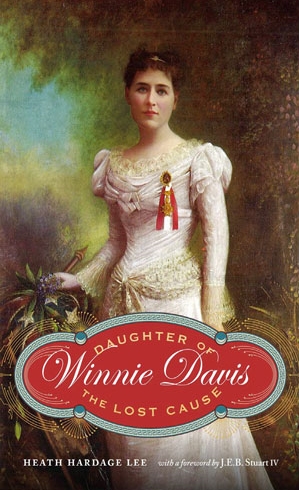 Now living in Roanoke, Richmond native Heath Hardage Lee is hard at work on a second book due next year, a look at the wives of Vietnam War POW’s (The Reluctant Sorority is the working title) and how they dealt with their husbands being locked up by the North Vietnamese. Lee recently traveled to Washington to meet with Arizona senator John McCain – one of the more notable prisoners of war who was held captive at the infamous “Hanoi Hilton.”
Now living in Roanoke, Richmond native Heath Hardage Lee is hard at work on a second book due next year, a look at the wives of Vietnam War POW’s (The Reluctant Sorority is the working title) and how they dealt with their husbands being locked up by the North Vietnamese. Lee recently traveled to Washington to meet with Arizona senator John McCain – one of the more notable prisoners of war who was held captive at the infamous “Hanoi Hilton.”
In the meantime, Lee has been talking to various groups about her first book, published in 2014, concerning the daughter of Confederate president Jefferson Davis. “Winnie Davis – Daughter of the Lost Cause” is the first biography about this little-known women, who for many became a symbolic figure of the defeated South. It was not a crown she wore willingly said Lee, who started researching her biography “before the internet.”
Winnie Davis was her father’s link to the outside world when he was imprisoned after the Civil War, “the only child able to visit him,” said Lee. Davis went on to become a writer and lived for a time in New York City, “a new woman … breaking the mold.” Her engagement to a northern lawyer whose grandfather was a noted abolitionist shocked friends and the Southerners who “worshipped her,” notes Lee on the book jacket.
“It did not go over well. People threatened to kill [her fiancé],” said Lee, who researched the book in “a lot of dusty museums” and during trips to Mississippi and Colorado where the Davis family had homes.
“I always felt some sort of kinship with her after I saw her portrait as a teenager,” notes Lee of Winnie Davis.
In fact the portrait of Davis by painter John P. Walker adorns the cover of Lee’s book; a forlorn-looking Winnie is posed by a table draped with a confederate flag. “I asked my mother one day who that women was. She had a melancholy look. I knew there was a story there.” It took Lee more than 20 years to uncover and tell that story.
Lee says some saw the young woman “as an empty vessel” that they could project their thoughts on about the Civil War and the “lost cause” with her obvious connection to Jefferson Davis, former president of the succeeded states.
Davis suffered from her lineage and from her connection to the Civil War, and was often ill from stress-related ailments. “Living up to what other people want you to be, when you want to take a different route” and the pressures associated with that dilemma is a theme of the book, said Lee.
Winnie Davis “straddled” several worlds –the North and the South as well as the old and the new South – and became a unifying force. Especially after her death, notes Lee, who has written on Southern history for magazines and newspapers. She has also worked for southern-themed museums. “I wanted to know what the South looked like in the [post war] 19th country,” said Lee. “It was rough – a devastated country.”
Winnie Davis – Daughter of the Lost Cause is now on sale at online booksellers.
Gene Marrano


